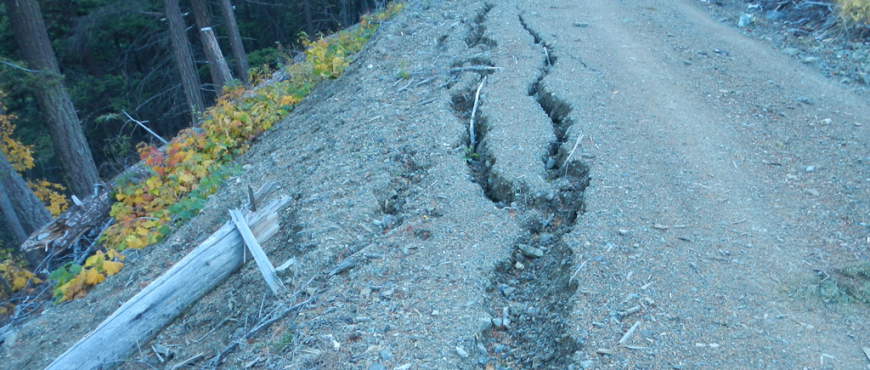Investigation of forestry roads on steep slopes released
VICTORIA – An investigation of forestry roads constructed on steep terrain has found mixed results.
While most of the road sections examined met the legal requirements, and some were very well done, others did not adhere to professional practice guidelines and several road sections were structurally unsafe, according to a report released today.
The board looked at the design, construction and deactivation of 26 segments of road, built on steep terrain between 2012 and 2016, in five natural resource districts throughout the province. The roads were examined for compliance with the Forest and Range Practices Act and adherence to professional practice guidelines issued jointly by the professional foresters’ and the professional engineers’ regulatory bodies.
“We saw some examples of excellent road construction practices and these are highlighted in our report,” said board vice-chair, Bill McGill. “We also saw some roads that were not well built and six road segments were not considered safe for road users due to construction deficiencies. Steep roads present the greatest risks to the environment and to user safety and it is critical that they be constructed carefully and with the involvement of qualified terrain specialists.”
The report recommends that government review the current legal requirements for road construction in steep terrain and consider whether there is a need for additional requirements. It also recommends that the Association of BC Forest Professionals and the Engineers and Geoscientists BC address the professional practice issues identified in the investigation.
Roads on steep slopes represent a very small portion of the roads constructed each year in B.C., but have long been identified as a cause of slumps, landslides and, in some cases, impacts to fish streams and private property. Provincial legislation requires new roads to be safe for industrial use and they must not damage forest resources. Forest licensees and the professionals they employ determine how this result is achieved and they decide where roads are built, when and how. In doing so, they are expected to use recommended procedures and guidelines, and to obtain professional expert advice when appropriate.
The Forest Practices Board is B.C.’s independent watchdog for sound forest and range practices, reporting its findings and recommendations directly to the public and government. The board can investigate and report on current forestry and range issues and make recommendations for improvement to practices and legislation.
Contact:
Darlene Oman, Communications
Forest Practices Board
Phone: 250 213-4705 / 1 800 994-5899
September 13, 2017
Related Reports


